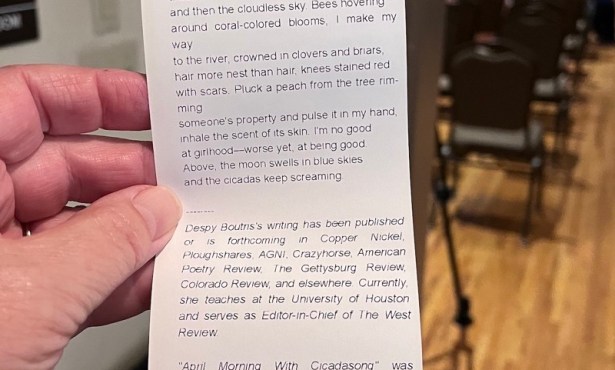It’s Only a Play Reviewed
It's Only a Play at Victoria Hall Theater on Saturday, May 2
It’s Only a Play is a show about the theater. It is concerned with the intricacies of the craft and the despair that often follows an opening. The characters are show business archetypes-the anxious playwright, the despondent director, the coked-out actress. The dialogue is peppered with industry jargon and early ’80s Broadway references. All of this might be dramatic nirvana for theater junkies and out-of-work actors, but it ultimately limits the show’s ability to appeal to a wide audience. The casual theatergoer may be a bit intimidated by the subject matter. That is not to say the show is without merit; it’s just not tremendously approachable.
The story follows a revolving door of characters over the course of one opening night party. As they eagerly await the reviews-which are awful, as one might guess-they curse their collective fates, muse on the meaning of dramatic art, and snort a fair amount of cocaine. The character’s names are seldom used, except when they are humorously misquoted in print; they prefer to refer to themselves and each other as the actor, the director, the playwright, the producer, etc. Subtlety is notably absent, yet the scenes still crackle with tension and hilarity. As the night continues, the events become more and more bizarre, eventually culminating in a surreal [Tom] Stoppard-esque ending.
All of this wit and weirdness is held together wonderfully by the cast. Star David Brainard is hilarious as the focal point of the show. Both the plot and all the other characters revolve around him. Brainard is a Renaissance man, as in addition to his starring role, he also directed the show. Indeed, he must have had the cozy Victoria Hall Theater in mind when conceiving It’s Only a Play. Brainard’s direction seems more concerned with intimacy than inspiration. Because of the close quarters, the audience is allowed to witness the characters’ mannerisms-how they light a cigarette or how they sip their champagne. A sense of controlled intimacy and closeness between audience and performer is definitely achieved and is only accentuated by the venue.
However, despite the best efforts of Brainard and the rest of the cast, It’s Only a Play falls just short of distinction. The content, and context for that matter, is simply too narrow and restricted. As a result, opinions are, as one character aptly predicted, “going to be mixed.”



